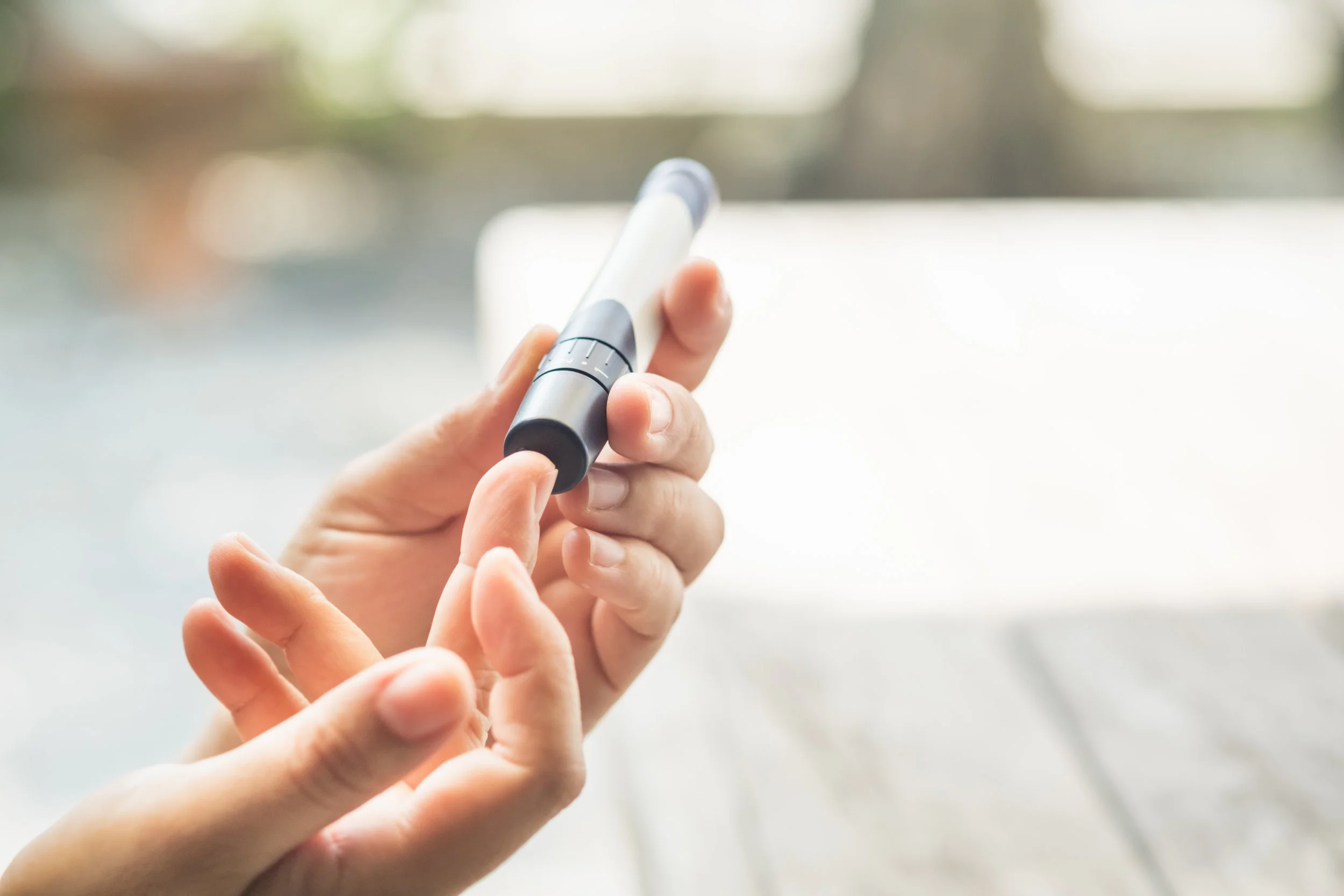What is Diabetes?
Our bodies are pretty remarkable. Among the many vital and intriguing processes that go on without our knowledge is the way that our processes of energy production, storage and distribution. Throughout the day, our liver stores and releases sugar in the form of glycogen according to need, increasing the available sugar or glucose in our blood. When we consume food, our body breaks down carbohydrate into sugar which is then absorbed into our blood and dependent upon our need, will be either stored or put to use. This is where a vital hormone called insulin comes into play. Insulin is how our body tells its tissues (for example, the muscles, liver and brain) to transport glucose out of the blood stream.
In some cases, a combination of genetics, relatively low physical activity behaviours and a diet high in carbohydrate-rich foods means blood sugar levels will remain elevated. It is almost as though insulin is a ‘bus’ that helps glucose get to where it needs to go, but that the ‘bus’ doesn’t have enough seats to do it’s job effectively. Another way of thinking about it is like when the body tells our muscles and other tissues to take glucose out of the blood, the message isn’t heard properly. As a result, the body releases more insulin. When you speak to somebody and they can’t hear you, naturally you speak louder, right? That’s exactly what the body does too, when it speaks (releases insulin) and our muscles don’t hear it properly (insulin resistance) our body speaks louder, releasing even more insulin. Over time the body releases more and more insulin and our tissue become more and more insulin resistant meaning even though it’s trying our body can’t remove enough glucose from our blood and our blood sugar levels stay high. This also seems to result in the loss of special cells that produce insulin and also leads insulin to be less effective.
This is a condition known as Diabetes Mellitus Type II.
So How Can Exercise Help Me?
All forms of exercise can help the body by improving the regulation of its metabolic processes, regulating and lowering blood glucose levels. There are a number of fascinating different mechanisms that occur that lead to this change. In the case of resistance exercise - exercise that exerts its stress explicit on our muscles - a number of cellular processes occur that means insulin is not the only mechanism for glucose transport. This effect occurs short term, meaning exercise can used just like a medication to lower blood glucose. Over a longer term, the cumulative effect can be so profound as to consign type II diabetes to a state of remission. When compared with dietary interventions or medication alone, research has shown that only interventions that include exercise contribute to meaningful changes in fat mass.
What Exercises Can I Do?
If you’re not doing any significant amount of exercise, starting with any increase would be a good move. Specifically for type II Diabetes, resistance exercise can be completed effectively and without a considerable time commitment. Ideally movements should be repeatable in numbers up to around 10 repetitions before inducing the kind of fatigue that would make you want to rest. Completing exercise prior to meals can provide targeted increases in insulin sensitivity that may provide the most meaningful effect for someone living with Type II Diabetes. Movements should also be the sorts of actions that you want to get stronger at - whether it be getting out of a low chair, pushing a shopping trolley or climbing stairs. Aerobic exercise - the kind that makes you ‘huff and puff’ - is advisable also, and is as simple as starting with what you can do and making small increases over time.
Could Anything Go Wrong?
It’s important to note there are contraindications to exercise with Type II Diabetes. If we were to measure our Blood Glucose levels and record a number lower than 4 or greater than 19, it would be advised not to exercise at that time. If you have any other complications such as retinopathy, nephropathy or neuropathy, or are just unsure ab out where to start, it would be best to speak to your GP or Accredited Exercise Physiologist before beginning exercise.
Khy Whitford - Student

